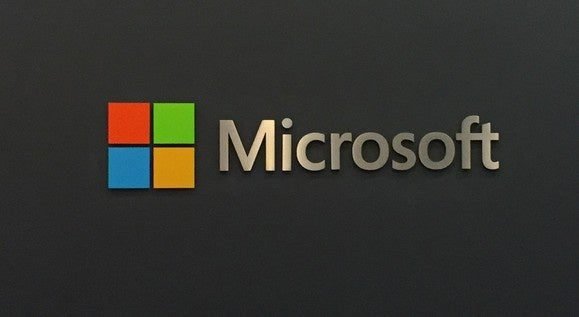
Microsoft has promised to engage with the company's employee unions and won't try to prevent them from forming.
“Recent organizing campaigns across the country, including in the technology sector, have led us to conclude that these issues will inevitably affect more companies, including potentially our own,” Microsoft Chairman Brad Smith said in a post by blog last week. "It encouraged us to think proactively about the best approach for our employees, shareholders, customers and other stakeholders."
Smith highlighted Microsoft's existing relationships with works councils and unions across Europe, but said the company still has "a lot to learn" when it comes to engaging with organizations in the United States on labor issues. The company has met with "prominent labor, business and academic leaders" in recent months to discuss its strategy, he said.
A new direction for American technology
Thomas A. Kochan, a professor at the MIT Sloan School of Management, described Microsoft's statement as a "bold and welcome commitment."
"This represents a break with the knee-jerk reaction of most American employers to resist all forms of worker organization," he said. “Today's workforce expects to be heard and wants to work constructively with management to build better worker-management relationships. Let's hope Microsoft is the first, but not the last, to take this no-nonsense approach.
In recognizing the right of workers to organize, Microsoft's position differs from that of other tech industry players that have faced union pressure, including Apple and Amazon. Apple has reportedly hired "anti-union" lawyers to help discourage staff from unionizing at various stores in the United States. Amazon has faced anti-union allegations as workers at the warehouse have organized in recent months, where workers won a notable electoral victory at its JFK8 plant earlier this year.
Smith said that Microsoft will not get in the way of organizing efforts within the company in the future. “We recognize that employees have the legal right to choose to form or join a union,” he said. "We respect this right and do not believe our employees or other Company stakeholders will benefit from resisting legal efforts by employees to engage in protected activities, including forming or joining a union."
However, in an interview with Axios on Thursday, Smith said that Microsoft would not encourage staff to unionize. “Our employees will always have direct access to the senior leaders of this company,” he said. "They don't need to form a union to be heard."
acquired activity
The announcement comes as Microsoft is in the process of acquiring video game maker Activision Blizzard in a €68,7 billion deal, where a small number of quality control officers recently voted to create the first union in a major American game studio. Questions have been raised about how Microsoft would respond to a union within its organization.
The acquisition may be one reason for Microsoft's desire to engage more broadly with unions.
“Maybe it's just a matter of recognizing that the power is passing to the workers and that it's time to adjust to this new reality,” Kochan said. “You also may not want to risk union opposition being perceived by the federal government as an abuse of power by a monopolistic company when you seek permission to buy this new company.”
Worker advocates weigh in
The Communications Workers of America (CWA), a union that represents a variety of workers, including those in the technology and gaming industry, welcomed Microsoft's statement, noting that the company's words must now be implemented.
"Across the gaming and technology industry, workers are showing their commitment to their colleagues and their companies by organizing to improve their workplaces," said CWA Secretary-Treasurer Sara Steffens. .
“Microsoft's public statement respecting its employees' freedom to form a union is encouraging and unique among major technology companies. To truly give workers a legally protected voice in decisions that affect them and their families, these principles must be put into practice and integrated into Microsoft's daily operations and its expectations of its contractors,” he said.
"Collaborative models" of industrial relations are common in Europe and are associated with high social well-being and labor productivity, said Denise M. Rousseau, the HJ Heinz II University professor of organizational behavior and public policy at Carnegie Mellon University.
"For Microsoft and other US-based companies to collaborate more, they must carefully circumvent US employment law, which is based on a separation of interest and adversarial relationships, but I think it's doable," he said. "My personal opinion is that companies get the labor relations they deserve based on how they treat and respect workers."
Copyright © 2022 IDG Communications, Inc.